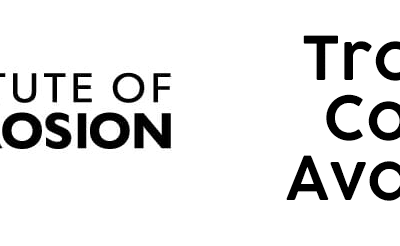U.R. Evans Award
After careful deliberation the CSD committee nominated Prof R.A. (Bob) Cottis (University of Manchester) as the recipient of the 2020 U.R. Evans Award. This decision has been ratified by the ICorr Council and it is planned that this will be awarded at the 61st Corrosion Science Symposium being held as a standalone meeting at the University of Southampton in September 2020.
Prof Cottis has been a champion of corrosion education throughout his entire career with seminal contributions within UMIST/Manchester, and activities linked to EFC WP7 Corrosion Education and NACE International. He joined the Corrosion and Protection Centre, UMIST in 1979, initially as a lecturer, then senior lecturer, reader and professor. He was appointed Professor Emeritus in Corrosion Science and Engineering on his retirement in 2011. Nonetheless, he has continued his research into hydrogen embrittlement and electrochemical noise measurements.
He has been active in the development of teaching in the field of corrosion, being responsible for the development of a distance learning approach to the MSc in Corrosion Control Engineering, and Director of the Teaching and Learning Technology Programme (TLTP, funded by the UK higher education funding bodies HEFCE, IIEFCW, SHEFC and DENI) Consortium that developed the Engineering Corrosion (Ecorr) courseware to support corrosion teaching. In 2005 he was awarded the T.J. Hull Award of NACE International, given in recognition of outstanding contribution to NACE in the field of publications.
Prof Cottis has also contributed to the international development of the subject in several areas. The main focus of his early research was the mechanistic aspects of corrosion fatigue. Both in respect of crack initiation, which is significant primarily for smaller components and where he demonstrated the role of corrosion in assisting the initiation process, and crack growth, where his work showed that larger cracks, such as those found in offshore structures, are relatively unaffected by corrosion and hydrogen entering the steel is a more important factor. In collaborative work he was responsible for the clarification of the interpretation of the results of existing electrochemical techniques and contributed to improvements in the statistical interpretation of pitting corrosion, both of which are of considerable industrial significance. On a more fundamental note, he also developed very efficient algorithms for the modelling of alloy corrosion. Most recently, he has been one of the leaders in the development of a fundamental understanding of the theoretical basis of electrochemical noise measurements, and in the better understanding of the capabilities and limitations of the use of artificial neural network methods for modelling corrosion processes.
As a reminder, the award criteria are; an international reputation and service to the corrosion science community, a contribution to dissemination – publications, professional bodies, patents and IPR, conferences and events. Plus a contribution to industry – especially of an inter-disciplinary nature, corrosion science and technology training, distinctiveness, originality and creativity of research – impact on corrosion discipline, seminal contribution to corrosion science and practice, and a continuing potential contribution to corrosion research. Nominations can be submitted at any time to the CSD chair.
Galloway Award
The Galloway Award is presented annually to a student author of a published paper on a corrosion-related topic. It is named in honour of Jack Galloway, a founder member of the British Association of Corrosion Engineers, a forerunner of the Institute of Corrosion.
The 2019 recipient is Liberato Volpe (University of Manchester) for his paper ‘Replicating PWR Primary Water Conditions in Low Pressure H2-Steam Environment to Study Alloy 600 Oxidation Processes’, which was published in the Journal of the Electrochemical Society (Volume 166, C1-C8, 2019).
The award consists of a certificate and a cheque for £300. Nominations for the 2020 award are now open; candidates should email a pdf copy of a paper published in the last 12 months to the CSD Chair by 4 Sept 2020.

